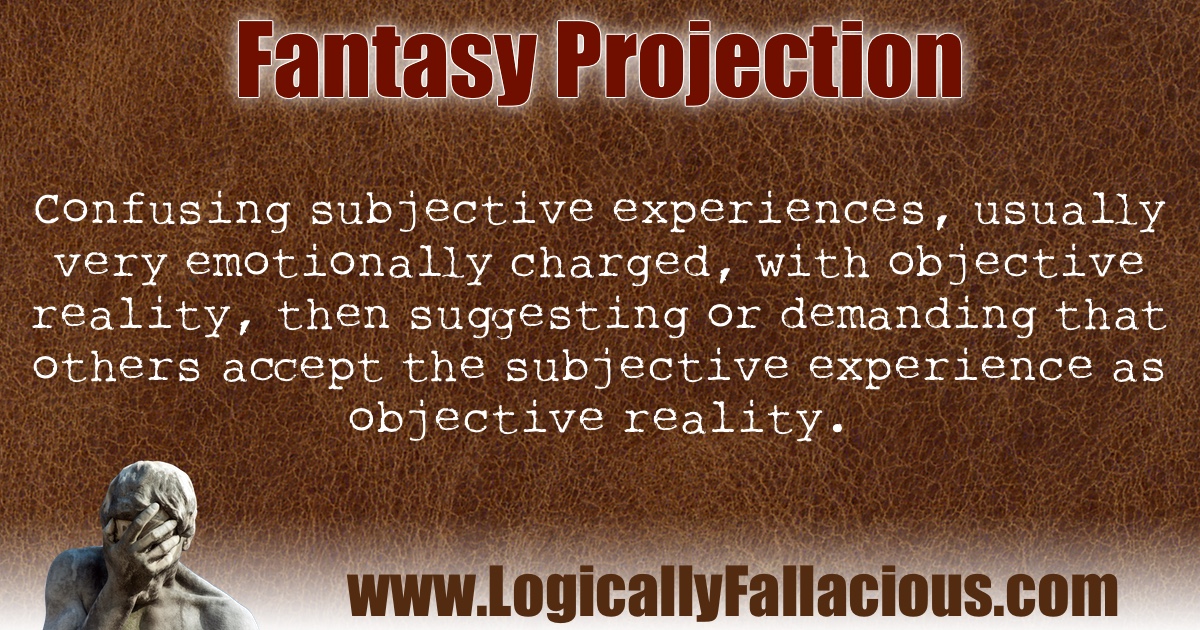Description: Confusing subjective experiences, usually very emotionally charged, with objective reality, then suggesting or demanding that others accept the subjective experience as objective reality.
New Terminology: In this context, subjective experience is the way one interprets some external stimuli. Objective reality is independent of our interpretations; it is a collection of facts about the world we all share.
Logical Form:
Person 1 has subjective experience X.
Person 1 incorrectly believes that experience X represents objective reality.
Therefore, person 1 insists that others accept that X represents objective reality.
Example #1:
Freddie: People are mean to me wherever I go. It is clear that we live in a cruel world with people who are mostly nasty. If you don’t see that, something is wrong with you!
Explanation: Perhaps people are mean to Freddie because Freddie is mean to others, and it’s Freddie’s behavior that is resulting in the “mean” behaviors of others (this is known as a self-fulfilling prophecy). Freddie is projecting his experience, which is unique to him, onto the world at large. He is insisting that other people see humanity the way he does. We don’t deny that Freddie is experiencing the world in the way he is; we just don’t accept that Freddie’s experience represents objective reality. To accurately determine if the world is, indeed, made up of “people who are mostly nasty,” we would need to conduct research using the scientific method.
Example #2:
I feel that we are all surrounded by Narggles. These are spiritual beings who help us through life. We know they exist because they are the ones that give us the confidence to move forward in a decision.
Explanation: Ignoring the circular reasoning (how we "know" Narggles exist), one person's fantasy might be their own reality, but not everyone else's.
Exception: One can argue that one's subjective experience is part of objective reality as long as they don’t insist that you interpret the stimuli the same way they did.
Freddie: It is a fact that this world consists of people who feel like most people they interact with are mean to them.
Fun Fact: Everyone knows Kerplunkers, not Narggles, are spiritual beings who help us through life.

References:
This a logical fallacy frequently used on the Internet. No academic sources could be found.
Questions about this fallacy? Ask our community!